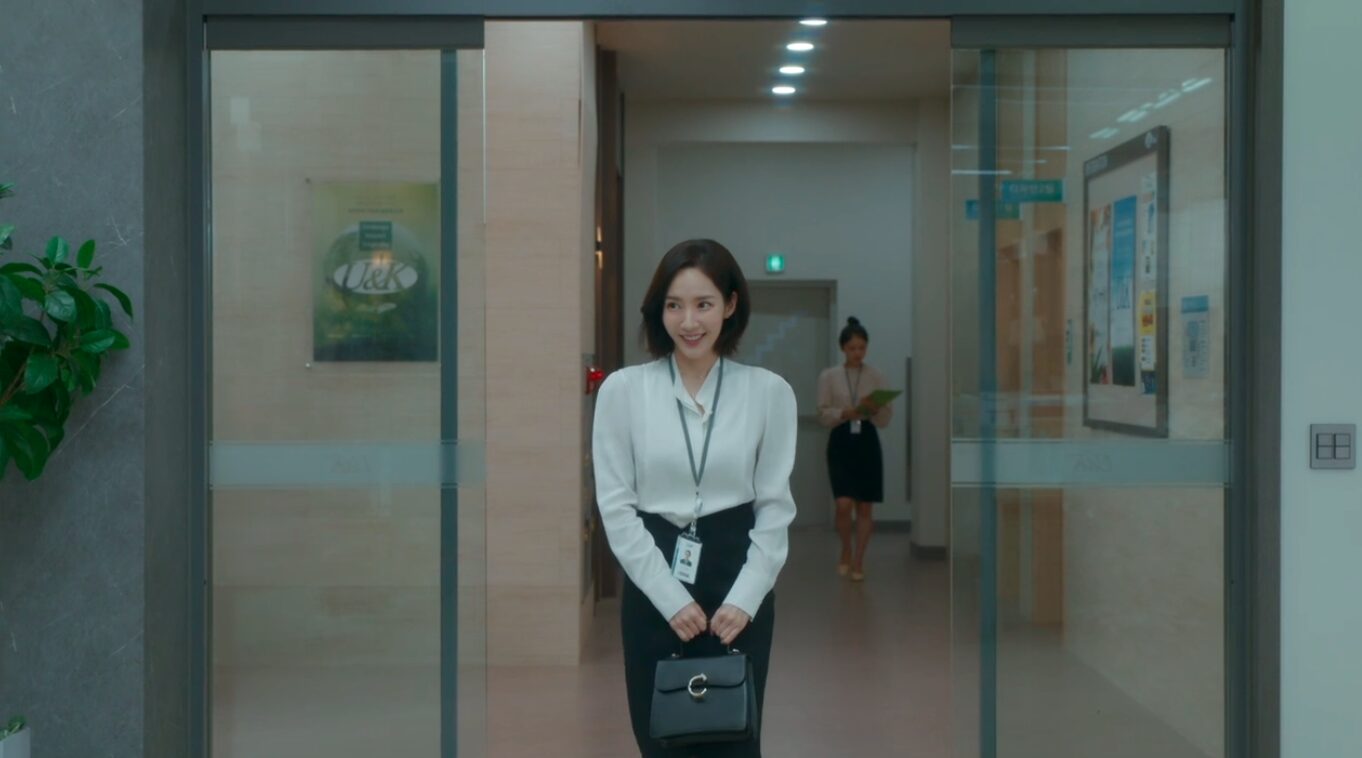It’s been two years now since I’m Not a Robot (INAR) aired in Korea. And as we near the anniversary of its final episode, I’m finally ready to talk about the terrible impact this romantic comedy has had on my life.
As hard as it is to admit, and even harder as it is to believe: INAR was possibly the worst thing that ever happened to me. It ruined Kdrama for me, possibly forever.

This seemingly frothy romcom about a wealthy man with a crippling allergy to human contact and a woman who pretends to be a robot rated badly and was barely watched in Korea.
With average ratings never quite making 4 per cent, casual viewers were probably confused by the show bursting into end of year wrap-ups a full 11 months later as Best Comedy and contender for Best Show. INAR put the cult back into cult hit and those for whom the show barely made an impression as it aired were left wondering what on Earth the fuss was about.
The show may have had low ratings but viewers like me were busy writing essays about the show’s imagery, themes, acting and writing, and breathlessly awaiting each new episode.
If you’re confused at this point, it’s understandable. This is probably the first piece you’ve read where someone blames a TV show for being good. But I’m not exaggerating at INAR’s affect on me or my drama viewing. It ruined everything.

To understand why, I have to take you all on a short detour into my television watching history.
I have no idea when I first started watching Kdramas. But I do know that sourcing them in the mythical Land Downunder was a constant struggle and so my viewing was few and far between. It wasn’t until much later that I began to find ways to source them online with English subs. And then with a VPN and improved streaming sites began watching more and more until by 2017 I was consuming them in vast quantities.
The thing that I enjoyed about these classic Korean dramas was their flaws as much as their strengths. Korean dramas have exceptional characterisation and are the masters at slow burn romance. And from around episode 12 they fall into a giant heap and the romance sort of fizzles out and the writers go round in circles until they’re so tied up in knots the show never actually ends but just collapses. That conflict? Resolved offscreen! That character? Not important! Look, our OTP are together forever! Who cares if he’s horrible and she’s a doormat. Happy ending!
And you start laughing at the lengths they go to to reassure us their characters absolutely definitely never had sex. Unless they need a pregnancy plotline.
But these ridiculous things didn’t matter so much if all the shows did it. It was even cute.
The Curse of the Final Four, we laughed. Is there a kdrama with a good ending, we joked. How can you say you’re in love when you look like you’re going to throw up every time he touches you? Do they fire the writer at episode 12? Oh, as if they haven’t even kissed!
All quirks. All fine.
And then I watched INAR.
And for the first time, I realised – kdramas don’t have to be like that, kdramas can be like this.
INAR was a revelation, although I didn’t entirely realise it at the time. INAR was the point when it all changed.
It turns out, Kdramas can maintain their themes over 16 episodes. Kdramas can deal with their conflict. Kdramas can be perfectly bookended and give all their characters a development arc and treat their second leads with respect. Kdramas, it turns out, can have something to say. And kdramas can portray two people falling in love in a way that’s both realistic and a perfect fantasy at the same time.
Kdramas can have a female lead that maintains her independence even in a relationship and a second male lead who needs to learn that women are flawed human beings and not perfect objects.
Kdramas can still be kdramas while simultaneous being I’m Not a Robot.
And suddenly those quirks, those fun flaws, those eye-rolling elements I’d been amused by in Kdramas before January 2018? Suddenly they weren’t fun or quirky anymore. Suddenly they were annoying.
Why are these romances so stilted and stylised? Why can’t the female lead be more successful than the male lead? Why can’t the second female lead have her own life, her own story, her own arc? Why can’t you maintain your themes to the end? Why can’t your characters actually talk to each other properly? Why would I be satisfied with a time jump where all the conflict is resolved offscreen? Why can’t you be more like INAR?
At first, the impact wasn’t so noticeable. I watched a lot of dramas in 2018 and the whole thing crept up on me slowly. Suddenly I was bored with dramas I would have tolerated; annoyed with ones I would have been amused by; angry at ones I would have just shaken my head at.
Kdramas can be better than this. You’ve shown me it’s true!
And judging by the experimental, groundbreaking dramas in 2019 I’m not the only one who thinks so.
I don’t think it’s too much of an overstatement to say that INAR is a watershed moment in Korean television, one so subtle and unremarked that most people don’t even realise its importance. In many ways, it didn’t just ruin Kdramas for me, it signalled a drastic shift in the kind of narratives, characters and themes that writers and producers would start to work with.
It’s a line in the sand, a border if you will, that says Things change here.
This is not to suggest that INAR itself caused this. It was merely the first volley in a concerted attack on the somewhat stale and formulaic ways that television was being made. On paper it was a perfect Kdrama. But in execution it was entirely a new thing: fresh, original, intelligent and, yes, feminist in a way that few Kdramas had been before.

Kim Min-kyu is the reason that I found myself intolerant of Chaebol assholes with traumatic pasts. “I don’t need a reason for them to be an asshole,” I started saying, “I need them to not be assholes.”
Jo Ji-ah is the reason I found myself impatient and frustrated with Candies and Pot Plants. “You can be thrown into a situation out of your control,” I began arguing, “without being a victim of it.”
It is somewhat easy to celebrate the female agency in a show that was about female agency. That is definitely true. But the fact that Korea made a show about female agency at all? That was really something.
And that show? That quirky little feminist show?
It was funny, it was sad, it was angsty, it hurt. It made you laugh and cry and feel and love. It made you soar as high as a meteor shower and shatter like so much glass upon the floor. It made you collapse like a house of cards and feel the warmth from the sunlight in the aftermath. It connected you across space and time and made you realise that you needed the warmth of those hedgehogs, even if their spines hurt you now and then.
Love hurts, it said, but it’s still worth it.
It wasn’t perfect (is anything perfect?) but it remains, to this day, my favourite drama.
One that ruined everything.
Happy birthday, Pretty.





Clap clap clap!!!! As a Korean American who used to translate some old articles/dramas, I totally agree with you. I watched INAR because of YSH, but it was only after several rewatches, that I started to understand much of the hidden analogies, paradoxes and symmetry in this drama.
I watched it only this year, during coronavirus lockdown. 6 months later, I still can’t move onto the next drama.
I am a Kim Soo Hyun fan too, so I want to watch “it’s ok not to be ok.” But I still dont want to leave YSH.
I love your blog. Keep it up!
Oh thank you! I love INAR so much. And it’s nearly time for our annual INAR watch – OctobINAR! I haven’t decided if I’m going to blog anything about it though. I’ve written so much about INAR in so many forums I’m not sure I have anything left to say.
I happened to rewatch INAR last year, and despite bracing myself for the typical kchaebol opener, somehow it was smooth sailing from the hand-off of the tainted collectible to the end. I don’t know why the beginning set up stuck so hard in my mind other than there are truly so many asshole MLs in kdramas, but it will no longer inhibit me from adding it to my own tiny yearly rewatch list. (OctobINAR made me laugh, I must admit.)